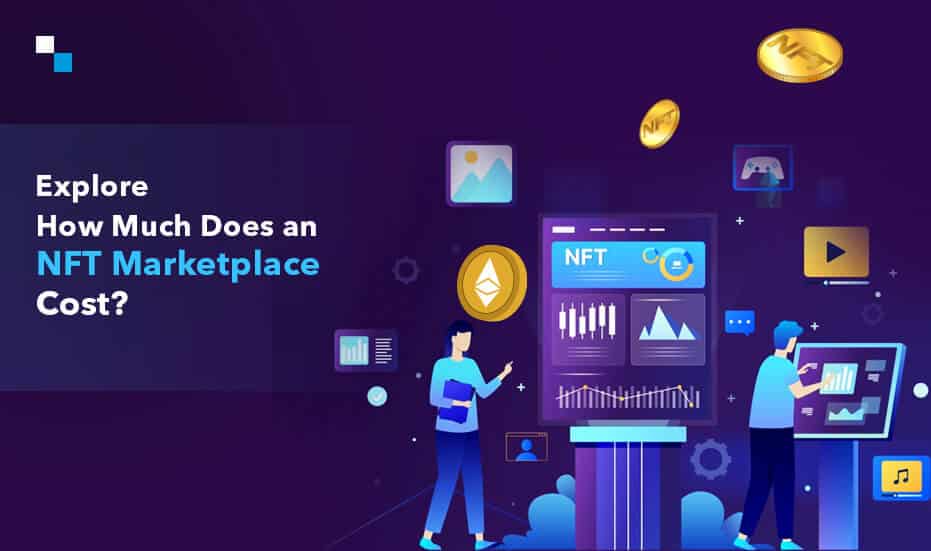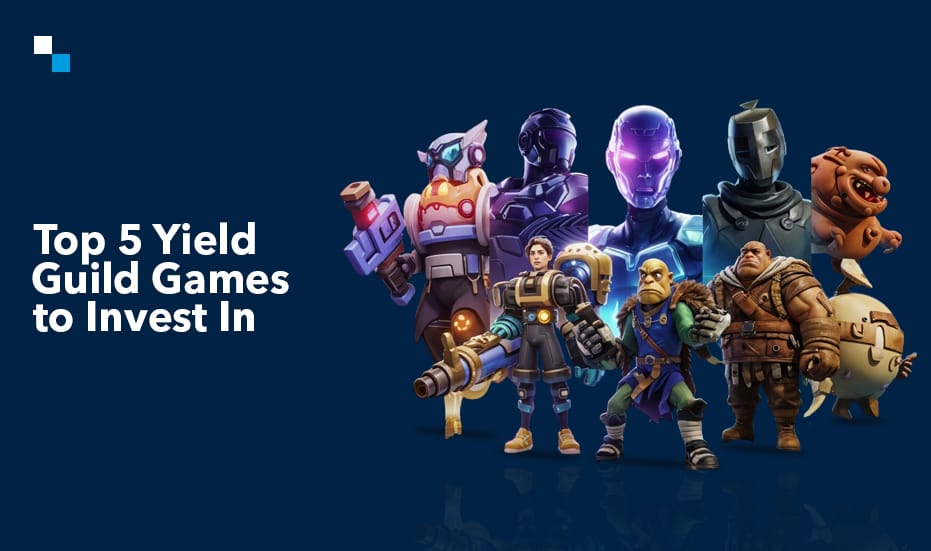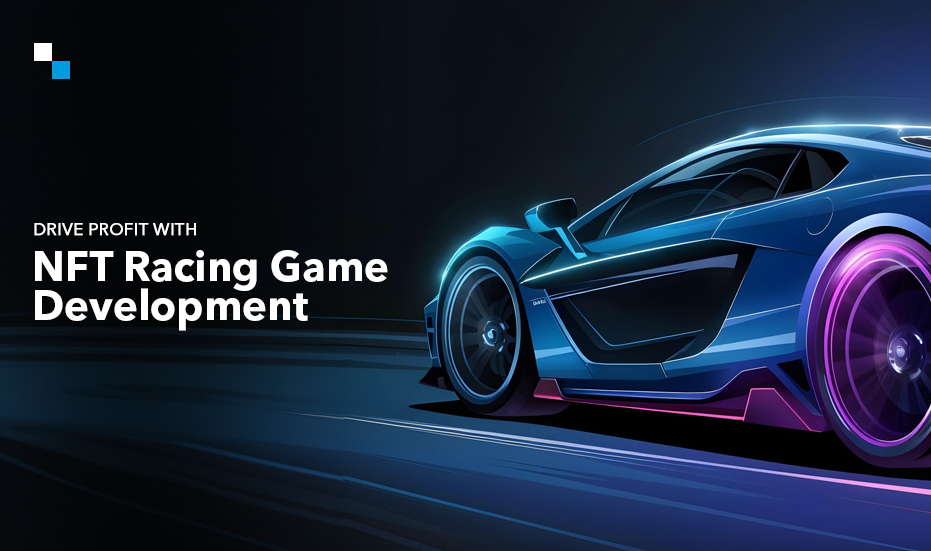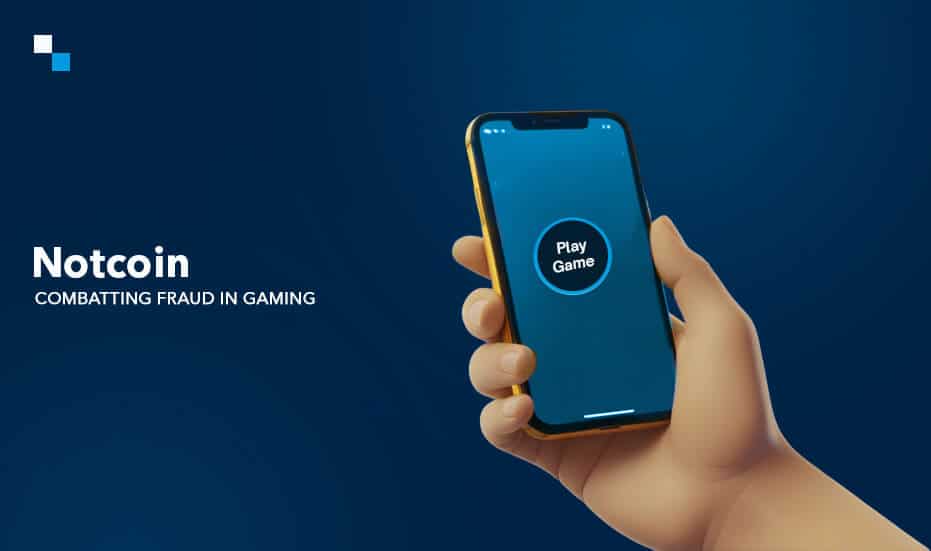In the dynamic realm of digital transactions, NFT marketplaces emerge as a groundbreaking departure from conventional trading methodologies. Within the blockchain landscape, these Non-Fungible Tokens (NFTs) redefine ownership with unparalleled uniqueness.
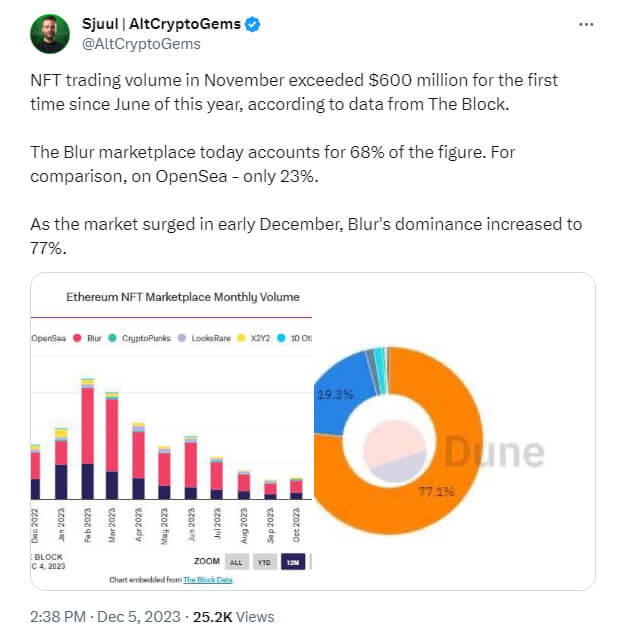
By leveraging blockchain’s cryptographic prowess, each NFT represents a singular, indivisible asset, offering an irreplicable form of authenticity.
This departure from the traditional trading norm eliminates the risk of duplication or forgery, ensuring a level of trust and exclusivity previously unattainable. Operating on decentralized platforms, NFT marketplace platform development employs smart contracts to guarantee transparent, secure, and efficient transactions. This revolutionary fusion of blockchain and digital ownership not only simplifies trading but also catalyzes a paradigm shift, empowering artists, creators, and investors in unprecedented ways.
Revenue in the NFT market is expected to show an annual growth rate (CAGR 2023-2027) of 18.55% resulting in a projected total amount of US$3,162.0m by 2027.
Now that you are aware of the significance of NFT marketplaces for modern businesses, the next thing that strikes your mind is the cost of developing one. Agreed?
Well, let’s jump to this section directly!
Cost for NFT Marketplace Platform Development
When planning for NFT marketplace development, the overall cost will vary based on numerous factors. The most prominent one is whether you want to develop a platform from scratch or a white label solution. Beginning from the ground up will demand a lot of cost, time, and effort, while a white label one saves you a lot.
Besides this, there are numerous other parameters that decide the overall cost of developing an NFT marketplace, such as:
1. Blockchain Technology Selection
The choice of blockchain technology is fundamental to the success of your Ethereum, which remains a popular choice due to its robust ecosystem and widespread NFT marketplace platform development and adoption. However, exploring alternatives like Binance Smart Chain, Flow, or Polygon can offer different advantages, such as lower transaction costs and faster processing times. Assess the unique features and capabilities of each blockchain to align them with your marketplace goals.
Learn why Polygon can be an ideal choice for your next NFT project.
2. Smart Contract Development
Smart contracts form the backbone of NFT marketplaces, defining the rules governing the creation, ownership, and transfer of digital assets. Ensure that your smart contracts are not only secure but also versatile enough to accommodate various use cases. Consider features like programmable royalties, ensuring that creators receive a fair share of secondary sales.
3. User-Friendly Interface
Having an appealing yet user-friendly interface is important not only for attracting but also for retaining both creators and buyers. Make the interface intuitive and aesthetically pleasing while implementing features like easy onboarding, transparent navigation, and a responsive layout. The goal is to make the entire NFT creation and trading process as straightforward and enjoyable as possible.
4. Scalability and Performance
Scalability is vital to accommodate a growing user base and increasing transaction volumes. Optimize the platform’s architecture to handle spikes in activity without compromising performance. Consider layer 2 scaling solutions or explore blockchain platforms that inherently provide scalability features to future-proof your NFT marketplace.
Read a recent case study of a successful social media marketplace development here.
5. Security Measures
Security is paramount in the blockchain space. Implement industry best practices for securing user data, transactions, and NFT assets. Employ encryption methods, secure key management, and conduct regular security audits. Establish protocols to address potential vulnerabilities promptly, demonstrating a commitment to safeguarding the integrity of the platform.
6. Feature Selection
Carefully select and implement features that differentiate your NFT marketplace platform development. Consider functionalities like a customizable storefront for creators, integrated wallets, a robust search and discovery mechanism, and tools for content curation. Incorporate unique features that cater to the specific needs of your target audience, such as specialized categories for different types of digital assets or innovative auction formats.
7. Community and Marketing
Building a vibrant and engaged community is pivotal for the success of your NFT marketplace. Develop a comprehensive marketing strategy to attract creators and buyers. Utilize social media platforms, forums, and targeted advertising to raise awareness. Encourage community participation through events, collaborations, and incentivized programs. A strong community not only fosters trust but also contributes to the organic growth of your marketplace.
Incorporating these factors and a well-thought-out selection of features into your NFT marketplace development strategy will position your platform for success in the competitive and ever-evolving blockchain ecosystem. Regularly assess market trends and user feedback to adapt and enhance the platform’s features accordingly, ensuring its continued relevance and appeal.
Set a new milestone in the NFT marketplace platform development space while you partner with Antier. With us, you can develop a robust marketplace like OpenSea and gain a competitive edge in the global market.
